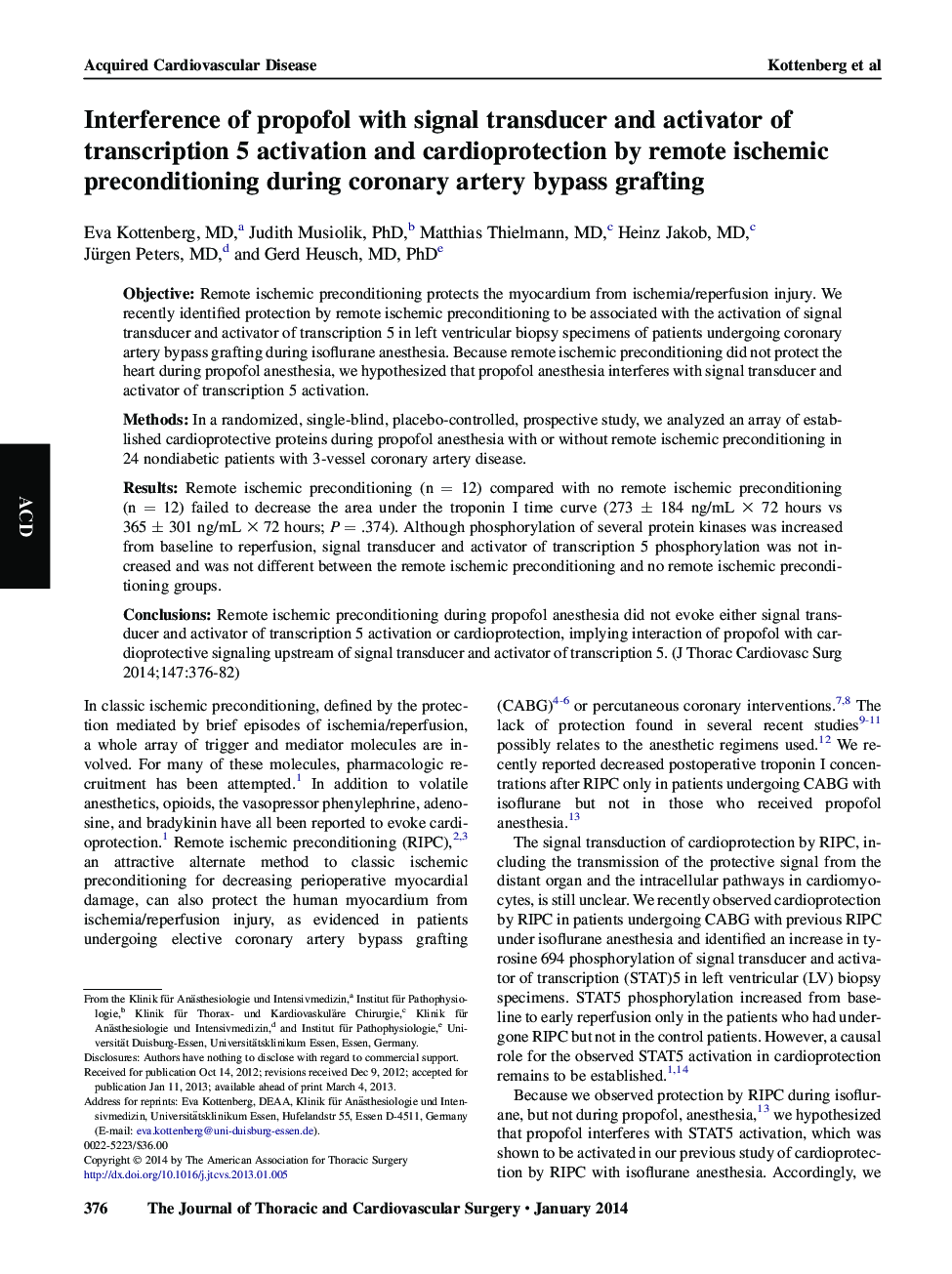| Article ID | Journal | Published Year | Pages | File Type |
|---|---|---|---|---|
| 2980613 | The Journal of Thoracic and Cardiovascular Surgery | 2014 | 7 Pages |
ObjectiveRemote ischemic preconditioning protects the myocardium from ischemia/reperfusion injury. We recently identified protection by remote ischemic preconditioning to be associated with the activation of signal transducer and activator of transcription 5 in left ventricular biopsy specimens of patients undergoing coronary artery bypass grafting during isoflurane anesthesia. Because remote ischemic preconditioning did not protect the heart during propofol anesthesia, we hypothesized that propofol anesthesia interferes with signal transducer and activator of transcription 5 activation.MethodsIn a randomized, single-blind, placebo-controlled, prospective study, we analyzed an array of established cardioprotective proteins during propofol anesthesia with or without remote ischemic preconditioning in 24 nondiabetic patients with 3-vessel coronary artery disease.ResultsRemote ischemic preconditioning (n = 12) compared with no remote ischemic preconditioning (n = 12) failed to decrease the area under the troponin I time curve (273 ± 184 ng/mL × 72 hours vs 365 ± 301 ng/mL × 72 hours; P = .374). Although phosphorylation of several protein kinases was increased from baseline to reperfusion, signal transducer and activator of transcription 5 phosphorylation was not increased and was not different between the remote ischemic preconditioning and no remote ischemic preconditioning groups.ConclusionsRemote ischemic preconditioning during propofol anesthesia did not evoke either signal transducer and activator of transcription 5 activation or cardioprotection, implying interaction of propofol with cardioprotective signaling upstream of signal transducer and activator of transcription 5.
